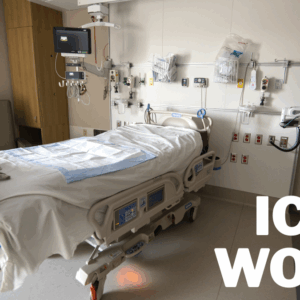In moments of sudden illness, trauma, or life-threatening conditions, emergency hospitals become the most vital point of contact for immediate medical attention. These hospitals are specially equipped to handle urgent health situations with speed, precision, and professionalism.
Unlike general clinics or small nursing homes, emergency hospitals operate round-the-clock and house trained emergency medical personnel, advanced life-saving equipment, and specialized departments to treat patients under extreme distress.
What Is an Emergency Hospital?
An emergency hospital is a healthcare facility with a dedicated emergency department (ED) designed to respond to serious medical emergencies. From road accidents and strokes to cardiac arrests and severe infections, these hospitals are the frontline defenders against fatal health events.
Key Features of Emergency Hospitals
24/7 Availability
Emergency hospitals are open every hour of every day. They ensure that no matter the time—day or night—patients in need of urgent care are attended to without delay.
Skilled Emergency Staff
Doctors, nurses, and trauma specialists working in emergency departments are specially trained to handle high-stress situations, make fast decisions, and perform life-saving procedures.
Advanced Medical Technology
Emergency hospitals are equipped with modern diagnostic tools like ECG machines, CT scanners, defibrillators, ventilators, and mobile X-rays to perform quick and accurate assessments.
Ambulance Services
Most emergency hospitals operate their own ambulance fleets equipped with life-saving tools and trained paramedics to stabilize patients during transit.
Triage System
To prioritize care, emergency departments use a triage system that classifies patients based on the severity of their condition. This helps ensure the most critical patients are treated first.
Specialized Units
Emergency hospitals typically include Intensive Care Units (ICU), Trauma Centers, Cardiac Care Units (CCU), and Surgical Units. These help in providing focused care based on the nature of the emergency.
Multi-disciplinary Collaboration
Doctors from various specializations—cardiologists, neurologists, surgeons, anesthetists—work together in emergency cases, ensuring well-rounded and swift intervention.
Common Conditions Treated in Emergency Hospitals
- Heart attacks and chest pain
- Stroke symptoms
- Major injuries and accidents
- Severe allergic reactions
- Unconsciousness or seizures
- Breathing difficulties
- Poisoning or drug overdose
- High fever or infections in infants and elderly
Importance of Emergency Hospitals in Healthcare
Emergency hospitals are crucial not only in urban but also in rural areas where specialized care is less accessible. They act as:
- First responders in pandemics or outbreaks
- Critical centers during natural disasters
- Hubs for mass casualty treatment
- Referral units for smaller clinics
Emergency Hospital vs Regular Hospital
| Feature | Emergency Hospital | Regular Hospital |
|---|---|---|
| Operating Hours | 24/7 round-the-clock | Mostly fixed or limited |
| Emergency Preparedness | High, immediate response | May refer serious cases out |
| Equipment & Facilities | Life-saving technologies | May lack critical tools |
| Doctor Availability | Always on-call | Limited outside working hours |
Improving Emergency Hospital Access
To enhance emergency services, governments and private sectors are:
- Establishing more trauma centers on highways
- Expanding air ambulance services
- Training first responders in rural areas
- Upgrading emergency communication systems
- Offering mobile emergency medical vans
Conclusion
An emergency hospital is more than just a treatment center—it is often the difference between life and death. With its swift response, skilled personnel, and modern tools, it ensures patients in critical condition get immediate, effective care. As healthcare systems evolve, strengthening emergency hospital infrastructure must remain a top priority to safeguard lives in the face of unexpected health crises.






